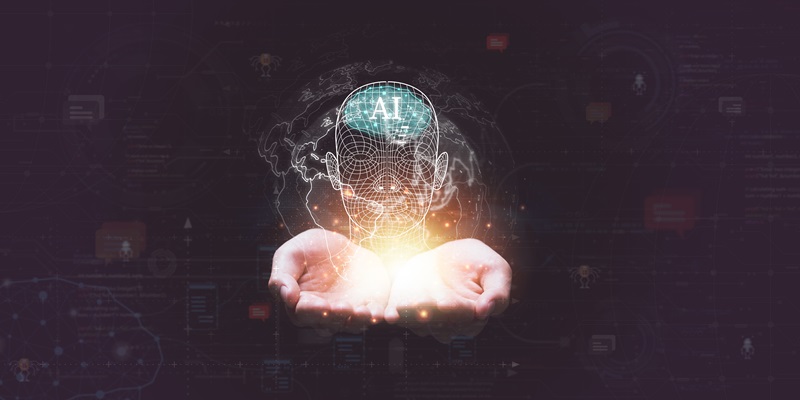The year 2025 is set to witness a significant transformation across various industries, driven by the deployment of autonomous Artificial Intelligence (AI) agents. These advanced systems, designed to operate without human intervention, are expected to optimize processes, enhance decision-making, and alter industry operations fundamentally. This article explores the nature of autonomous AI agents, their functioning, the industries poised for the most significant changes, the advantages and challenges of their deployment, and their future impact on society and businesses.
Understanding Autonomous AI Agents
Definition and Functioning of Autonomous AI Agents
Autonomous AI agents are sophisticated systems capable of running independently without human input. They leverage advanced technologies such as machine learning, natural language processing, and data analytics to comprehend tasks, adapt to changes, and make decisions autonomously. These agents analyze data patterns, predict outcomes, and act accordingly, functioning as digital coworkers.
The core of their operation lies in their ability to learn from vast datasets, enabling them to perform tasks ranging from repetitive administrative duties to complex predictive analyses. By understanding and processing natural language, these agents can interact seamlessly with human users, providing insights and recommendations that enhance productivity and decision-making.
Key Technologies Enabling Autonomous AI
The development of autonomous AI agents is underpinned by several key technologies. Machine learning algorithms allow these agents to learn from data and improve their performance over time. Natural language processing enables them to understand and generate human language, facilitating better communication and interaction. Data analytics provides the foundation for making informed decisions based on extensive data analysis.
These technologies work in tandem to create AI agents that are not only capable of performing tasks independently but also of adapting to new situations and improving their performance continuously. This adaptability is crucial for their deployment across various industries, where they can bring about significant improvements in efficiency and effectiveness.
Industries Poised for Transformation
Healthcare
The healthcare industry is one of the sectors expected to benefit immensely from autonomous AI agents by 2025. These agents will revolutionize patient care by handling various mundane tasks such as hospital schedule management and complex duties like disease diagnosis. They can monitor patient vitals, notify doctors of potential health issues, and suggest treatment plans based on vast datasets, thereby enhancing patient care and reducing the workload on clinicians.
In addition to improving patient care, AI agents will also streamline administrative processes within healthcare facilities. By automating tasks such as appointment scheduling, billing, and record-keeping, these agents will free up valuable time for healthcare professionals, allowing them to focus on more critical aspects of patient care.
Finance
The finance industry, though already familiar with AI, will see autonomous agents advance capabilities like market trend analysis, risk prediction, and execution of trades without human intervention. By 2025, AI agents are expected to assist in fraud detection, investment optimization, and personalized financial consulting, increasing efficiency and security.
These agents will analyze vast amounts of financial data to identify patterns and trends, enabling more accurate predictions and better decision-making. They will also enhance customer service by providing personalized financial advice and support, helping clients make informed investment decisions and manage their finances more effectively.
Logistics and Supply Chain
In the logistics and supply chain sector, autonomous AI agents can optimize delivery routes, predict demand fluctuations, and manage inventory effectively. By 2025, businesses could see reduced delays and improved resource utilization with AI-driven systems managing warehouses and streamlining operations.
These agents will analyze data from various sources to predict demand and optimize inventory levels, ensuring that products are available when and where they are needed. They will also improve the efficiency of delivery operations by identifying the most efficient routes and schedules, reducing costs and improving customer satisfaction.
Retail
In retail, AI agents will transform both online and offline shopping experiences by analyzing customer behavior, suggesting products, predicting trends, and managing stock. They will personalize in-store and online shopping experiences, making product recommendations based on customer preferences and past purchases.
By leveraging data analytics and machine learning, these agents will help retailers understand their customers better and provide more personalized shopping experiences. They will also optimize inventory management and supply chain operations, ensuring that products are available when and where customers want them.
Education
Autonomous AI in education will tailor learning experiences to individuals, monitor their progress, and suggest areas for improvement. By 2025, classrooms may feature AI tutoring technology helping students learn at their own pace.
These agents will analyze data on student performance to identify strengths and weaknesses, providing personalized feedback and recommendations for improvement. They will also support teachers by automating administrative tasks and providing insights into student progress, allowing educators to focus on delivering high-quality instruction.
Advantages of Autonomous AI Agents
Efficiency and Cost Savings
By 2025, a remarkable shift across various industries will be driven by the deployment of autonomous Artificial Intelligence (AI) agents. These sophisticated systems are engineered to work independently, without human oversight, and are anticipated to significantly optimize processes, improve decision-making, and fundamentally transform industry operations. This article delves into the essence of autonomous AI agents, their operational mechanisms, and identifies the sectors expected to undergo the most profound changes due to their integration. Moreover, it discusses the advantages these AI agents bring—such as increased efficiency and accuracy—as well as the challenges they present, particularly concerning security and ethical dilemmas. The future impact of these agents on society and businesses is also examined, highlighting how they are set to revolutionize everyday operations and interactions. By understanding these elements, we can better anticipate the benefits and prepare for the potential risks associated with this technological evolution.

